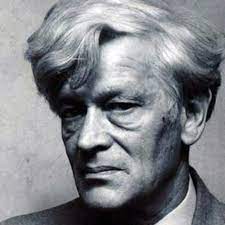Thompson, Edward P.

Bio: (1924-1993) British social historian. Edward P. Thompson started his studies at Oxford University but in 1941 left to fight in WWII. After the end of the war, he completed his degree at Cambridge in 1946. At Cambridge, he joined the Communist Party of Britain and formed the Communist Party Historians Group with historians Eric Hobsbawm and Christopher Hill. In 1952 that group started to publish the scientific journal Past & Present which focused on popularizing social history, in contrast to, at that time, the dominant approach to history that focused on political events. In 1956 Thompson left the Communist Party and next year with John Saville started the scientific journal New Reasoner, and in 1960 that journal merged with journals Universities and Left Review to form New Left Review, which still exists today. Thompson left as an editor of the New Left Review in 1962, after Perry Anderson become the chief editor, and started collaboration with the journal Socialist Register. In 1965 Thompson become director of the Centre for the Study of Social History at the University of Warwick. Thompson took part in the Campaign for Nuclear Disarmament – a movement in Britain that advocated for nuclear disarmament, the cause he continued to champion for the rest of his life.
Thompson's first book William Morris: Romantic to Revolutionary (1955) was focused on the life of William Morris, the nineteenth-century poet and socialist revolutionary and that book served to prop up Communist Party and communist cause. After his split with the Communist Party Thompson focused on propagating what he called “socialist humanism”. He started arguing that Stalinism become too authoritarian and that it clamped on independent thought. On the other hand, socialist humanism promoted a morally conscious type of Marxism that can liberate man from ‘slavery to things, to the pursuit of profit or servitude to ‘‘economic necessity’’’. For him, the concept of Culture (with capital “C”) included contributions of working people, and unlike others who saw culture as a “whole way of life”, Thompson envisioned Culture as a “whole way of conflict” – a dynamic and political area generated by social and class struggle. Thompson also rejected strict economic determinism and saw men as making their own history - they were part agents and part victims of history. On the other hand, Thompson was also critical of structural Marxism, especially of Althusser and his followers.
Thompson is best known for his book Making of the English Working Class (1963). This book researches the emergence of the working class in England in the period between 1790 and 1830. In the first part of the book, Thompson presents three traditions that influenced the creation of the working class – Methodism, mob rule and popular justice, and ‘Englishman’s birthright’ (various legal guarantees and rights and freedoms). In the second part of the book, he shows how the Industrial Revolution brought declining working conditions and social, political, and religious repression of the working class. In the third and final part of the book, Thompson portrays the responses of the working class to those worsening conditions of life and work. English working class was not simply a “thing” or a structure, but a historical phenomenon created through social relations. The common shared experiences and interests, combined with the class struggle, created the same identity and homogeneous class consciousness in the working class people. Structures and agency played the same part in the constitution of the English working class.
In the essay “The Moral Economy of the English Crowd in the Eighteenth Century” (1971), later republished in the book Customs in Common (1991), Thompson showed that English grain riots were not simply explosions of anger or “collective psychosis” caused by hunger, but logical and disciplined attempts to impose moral constraints to unchecked free marked devoided of moral and social concerns. In the essay “Time, Work-Discipline, and Industrial Capitalism” (1967) also republished in Customs in Common, he studies the rationalization of labor and work-time in the eighteenth century. Time and labor used to be connected to human rhythms and natural processes but were made to conform to abstract timetables and working hours.
Thompson, in the book Whigs and Hunters: The Origin of the Black Act (1975), studies how acts of groups of armed robbers led to the enactment of the “Waltham Black Act” in 1723 which introduced fifty new capital offenses concerned related to threats to property. Doing this government criminalized traditional forms of subsistence of the poor, and gave the emerging capitalist class power over working people.
Fields of research
Actors Art Capitalism Capitalist Class Classes Conflict Crafts (Artisans) Crime Crowd Culture Domination Economy Egalitarianism Exploatation, Economic Everyday Life Freedom Identity Ideology Industry Industrial Democracy Inequality, Social Market Modernity and Modernization Movements, Social Politics Power, Political Rationality Religion Socialism State Technology Work Working Class HistoryTheoretical approaches
Marxism – Post-Marxism (Neo-Marxism)Main works
William Morris: Romantic to Revolutionary, London: Lawrence & Wishart, (1955);
“Socialist Humanism: An Epistle to the Philistines”, in New Reasoner (1957);
“Agency and Choice”, in New Reasoner (1958);
Out of Apathy (1960);
“The Long Revolution I”, in New Left Review (1961);
“The Long Revolution II”, in New Left Review (1961);
The Making of the English Working Class (1963);
The May Day Manifesto (1968);
Whigs and Hunters: The Origins of the Black Act (1975);
Warwick University Limited (1977);
The Poverty of Theory and Other Essays (1978);
Zero Option (1982);
Protest and Survive (1980);
The Heavy Dancers (1985);
Star Wars (1985);
Prospects for a Habitable Planet (1987);
Customs in Common (1991);
Witness against the Beast: William Blake and the Moral Law (1993);
Making History: Writings on History and Culture (1994);
The Romantics: England in a Revolutionary Age (1997).

